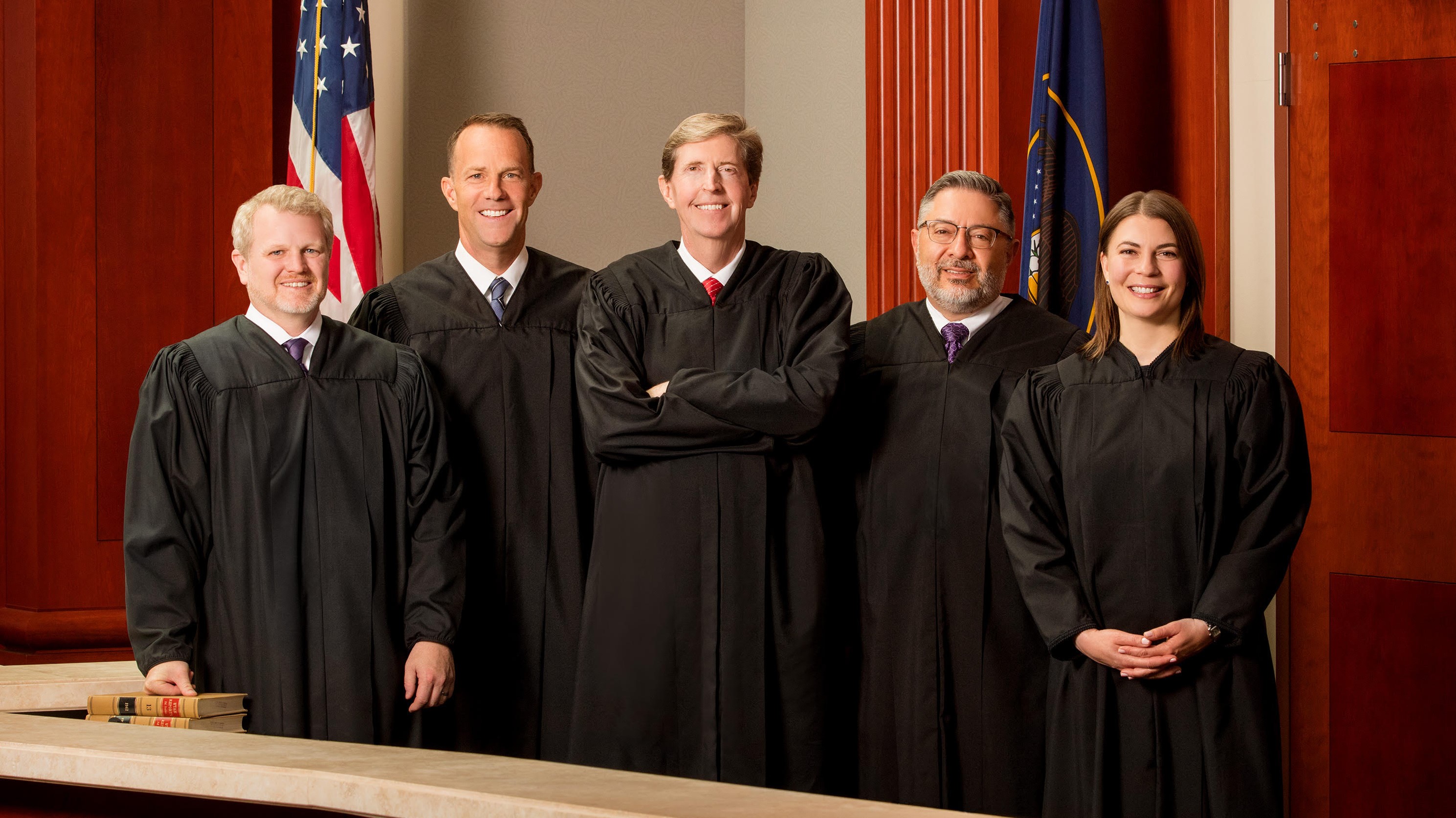The Utah Supreme Court on Friday proposed the most-sweeping reforms of the regulation of legal services in a generation and said it will fast-track approval of non-traditional legal-help programs that target problems spawned by the Covid-19 crisis.
The proposed changes, posted for a 90-day period of public comment, would amend Utah’s Rules of Professional Conduct, which govern law practice in the state. Among a number of changes, the proposals would allow fee-sharing with nonlawyers and would allow nonlawyers to have ownership or partnership interest in law firms or other authorized legal services providers.
The proposed changes would also establish a two-year pilot of a regulatory sandbox — a regulatory body under the oversight of the Supreme Court, to be called the Office of Legal Services Innovation, whose charge would be to license and oversee new forms of legal providers and services. The court said these new forms could include entities such as:
- Lawyers in partnership with other professionals such as accountants or social workers.
- Lawyers working as staff attorneys for companies offering legal services to the public. Such companies could include legal technology companies, consumer focused companies such as banks
or retail establishments. - Legal services, including legal advice, facilitated by technology or by nonlawyer experts.
The court has already created a pilot version of this regulatory sandbox. On Friday, it said it would offer expedited review and approval of proposals from individuals and entities who believe they can offer low-cost or no-cost legal advice for small businesses, people with unemployment issues, and others.
“Americans need and deserve access to affordable legal services,” Supreme Court Justice Deno Himonas, who heads the Utah Implementation Task Force on Regulatory Reform, said in the court’s announcement. “For decades, we in the legal profession have tried to volunteer ourselves across the access-to-justice gap. Under that approach, we’ve witnessed the gap grow into a crisis.
“And now COVID-19 and its aftermath threaten so many of us with severe legal consequences. The Utah Supreme Court’s regulatory reform efforts offer a way to harness innovation and market forces to improve the delivery of much-needed legal services to all.”
Friday’s proposals evolved out of a task force report issued last August, Narrowing the Access-to-Justice Gap by Reimagining Regulation, that called for addressing the state’s widening justice gap by “profoundly reimagining the way legal services are regulated in order to harness the power of entrepreneurship, capital, and machine learning in the legal arena.”
A few days after the report came out, the Supreme Court voted unanimously to approve it. Subsequently, the court created the sandbox pilot.
Regulatory Sandbox
In its proposed standing order that would create the Office of Legal Services Innovation, the court says it “anticipates that the regulatory reform set out in this Standing Order will shrink the access-to-justice gap by fostering innovation and promoting market forces, all while protecting consumers of legal services from harm.”
The role of the new office would be to assist the court in overseeing and regulating nontraditional legal services providers and the delivery of nontraditional legal services. It will have the authority to approve programs that offer legal services “by nontraditional providers or traditional providers using novel approaches and means, including options not permitted by the Rules of Professional Conduct and other applicable rules.”
“The overarching goal of this reform is to improve access to justice,” the proposed order says. “With this goal firmly in mind, the Innovation Office will be guided by a single regulatory objective: To ensure consumers have access to a well-developed, high-quality, innovative, affordable, and competitive market for legal services.”
The proposed order further says that the office should be guided by five regulatory principles:
- Regulation should be based on the evaluation of risk to the consumer.
- Risk to the consumer should be evaluated relative to the current legal services options available.
- Regulation should establish probabilistic thresholds for acceptable levels of harm.
- Regulation should be empirically driven.
- Regulation should be guided by a market-based approach.
The proposed office would have no authority to regulate traditional law firms or legal services providers, who would continue to be regulated through the state bar.
The proposed order specifies the process by which alternative providers would seek and receive authorization to deliver legal services. It also sets a procedure for monitoring licensed entities and handling consumer complaints.
Amendments to Conduct Rules
The proposals the court announced Friday would make sweeping changes to the Rules of Professional Conduct governing ownership of law firms, fee sharing, and advertising and solicitation. Among them:
- Current Rule 5.4 would be revised to allow fee-sharing with nonlawyers and to allow nonlawyer ownership, investment or partnership in law firms or other authorized entities. (Proposed new Rules 5.4A and 5.4B.)
- Rule 1.5(e) would be removed to permit fee-splitting among lawyers who are not in the same firm. (Redline showing changes.)
- The current rules governing lawyer advertising and solicitation (Rules 7.1, 7.2, 7.3, 7.4 and 7.5) would would be repealed and replaced with a single Rule 7.1 that would eliminate the prohibition against in-person solicitation of current Rule 7.3.
- The proposed Rule 7.1 would also prohibit lawyers from making false and misleading claims about their services and from interacting with clients in a way that involves coercion, duress, or harassment.
- The proposed Rule 7.1 would permit referral fees.
The court has posted these proposed changes for a 90-day period of public comment. The deadline for posting comments is July 23, 2020.
LawNext Episode 55: Utah’s Bold Experiment to Reimagine Legal Services
 Robert Ambrogi Blog
Robert Ambrogi Blog